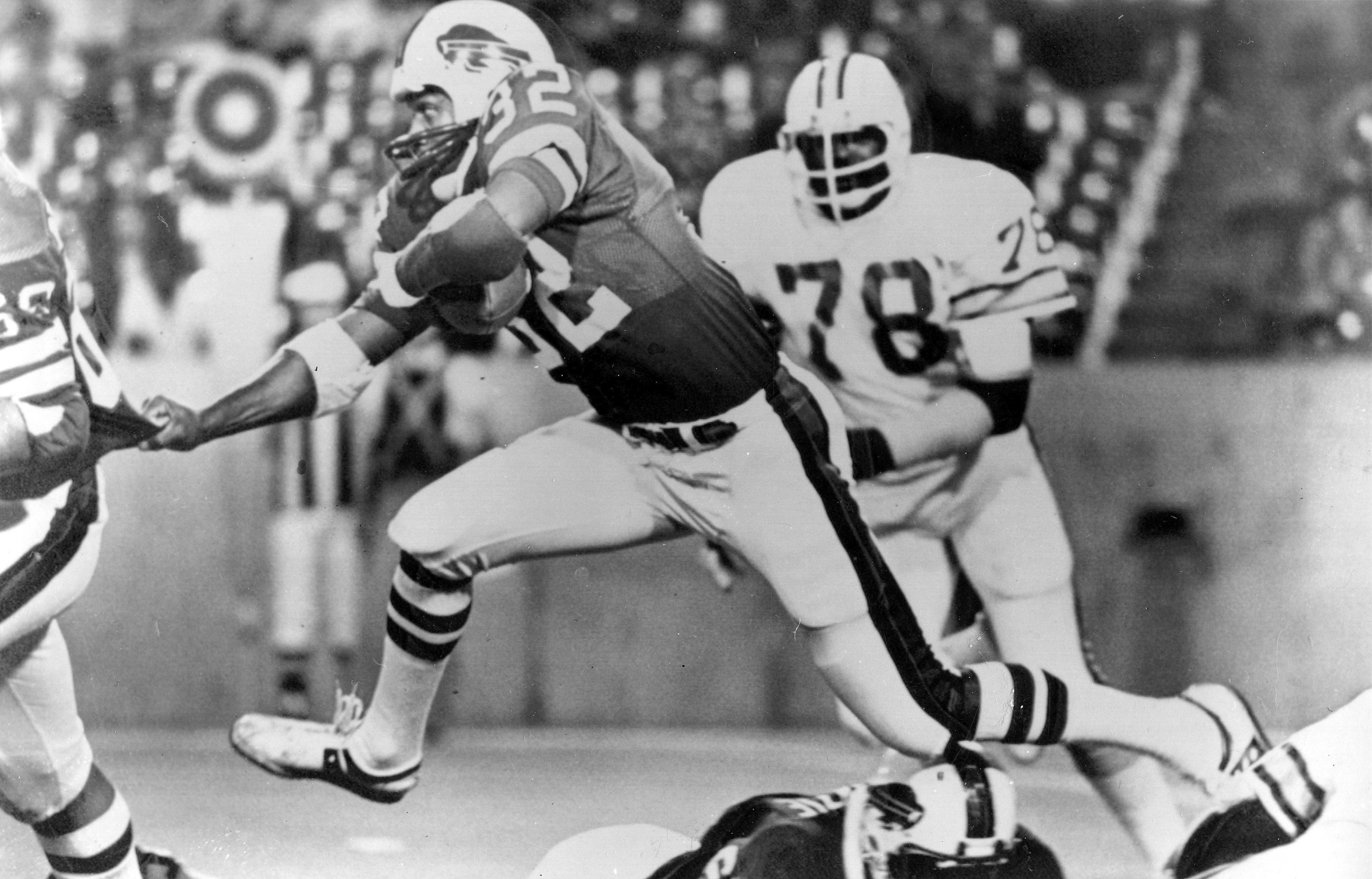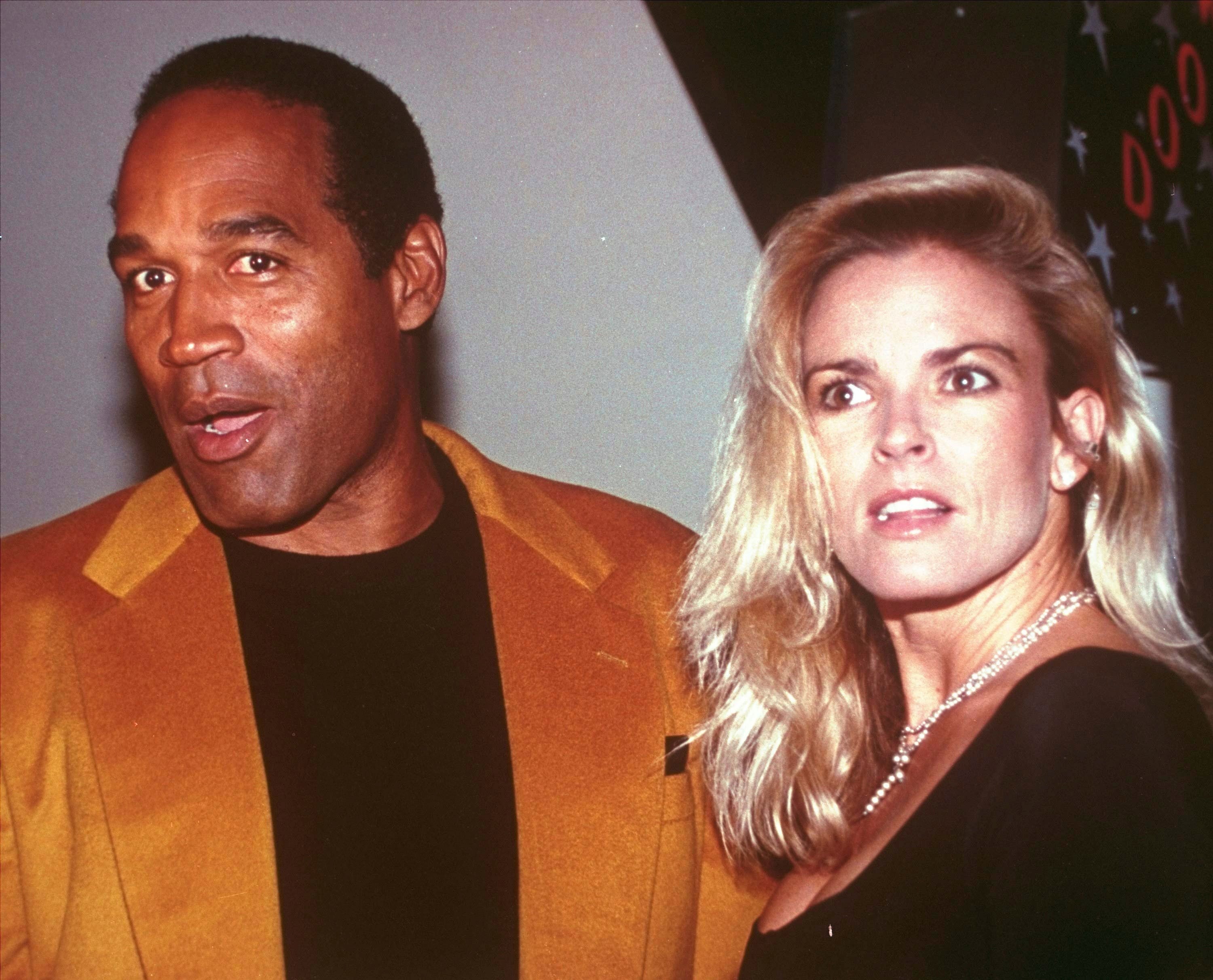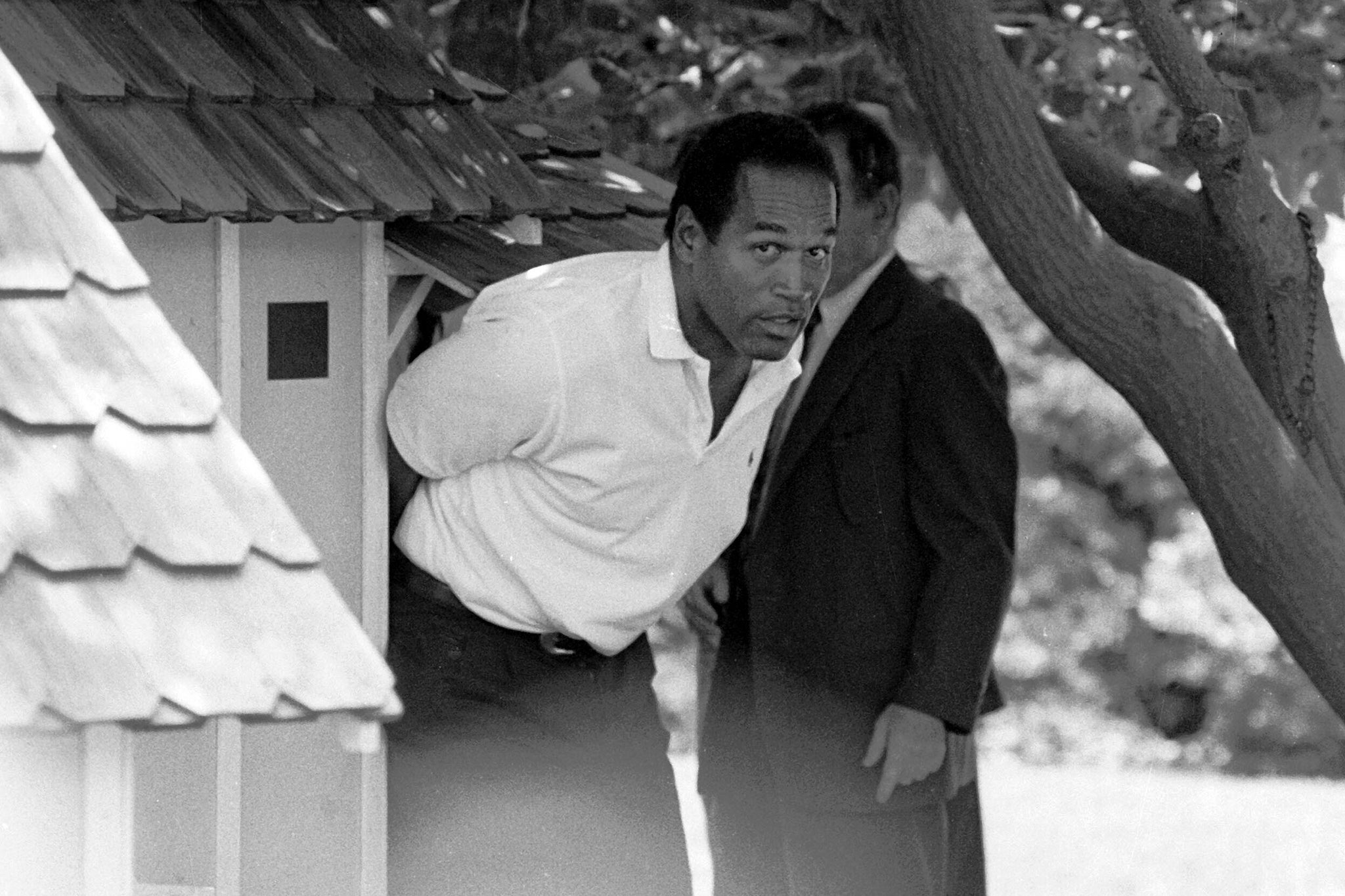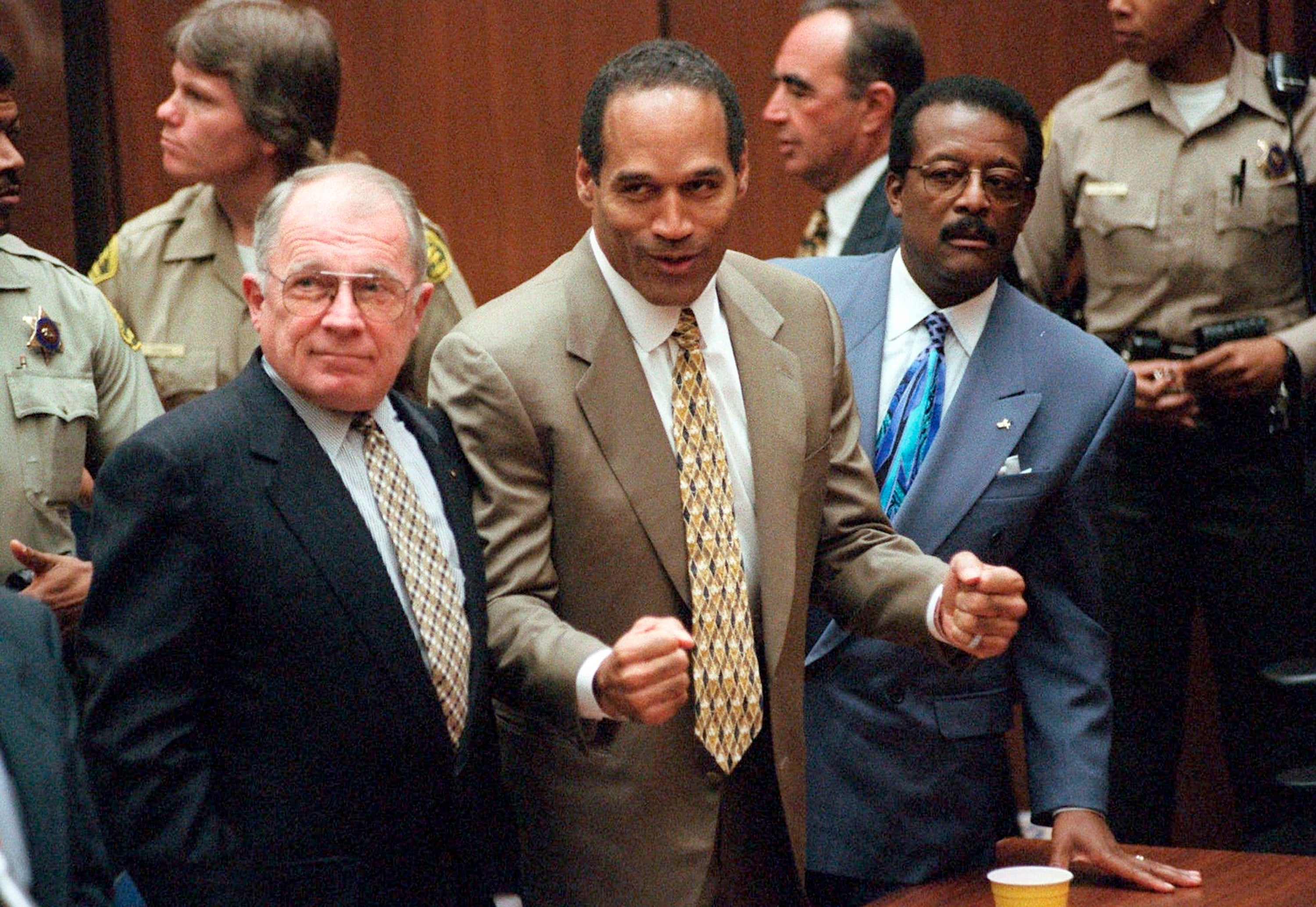OJ Simpson’s fall from grace: The NFL superstar turned murder suspect and convicted kidnapper
He overcame childhood illness to become a football legend, but when he was charged with murdering his ex-wife and her friend, his very name divided America
Your support helps us to tell the story
From reproductive rights to climate change to Big Tech, The Independent is on the ground when the story is developing. Whether it's investigating the financials of Elon Musk's pro-Trump PAC or producing our latest documentary, 'The A Word', which shines a light on the American women fighting for reproductive rights, we know how important it is to parse out the facts from the messaging.
At such a critical moment in US history, we need reporters on the ground. Your donation allows us to keep sending journalists to speak to both sides of the story.
The Independent is trusted by Americans across the entire political spectrum. And unlike many other quality news outlets, we choose not to lock Americans out of our reporting and analysis with paywalls. We believe quality journalism should be available to everyone, paid for by those who can afford it.
Your support makes all the difference.Twenty-nine years ago, in 1995, the world was gripped by what the US media called “the trial of the century”, in which American football star and actor OJ Simpson was accused of murdering his former wife, Nicole Brown Simpson, and her friend Ron Goldman. They had been viciously stabbed to death.
Simpson was a superstar of sport and screen in the US, but in the UK what really made him famous was the live television coverage of police chasing his car through the streets of Los Angeles – as viewers were stunned by a celebrity becoming a wanted man.
Other drivers got out of their cars to cheer him on, in what became an iconic real-life highlight of television history.

After 60 miles, the chase ended at Simpson’s mansion, and he was later charged with the double murder.
The story of how the American hero was suspected of turning into a villain played out dramatically in court, in one of the most notorious trials to be held in 20th-century America.
The case had everything to keep viewers on the edge of their seats: a rich celebrity defendant; a Black man accused of killing his white former wife out of jealousy; a woman murdered after divorcing a man who had beaten her; expensive, charismatic defence lawyers; and a huge gaffe made by prosecutors.
In a sensational ending to the trial, Simpson was cleared of both murders, but 13 years later, in 2008, he was convicted of 12 counts of armed robbery and involvement in the kidnapping of two sports memorabilia dealers at gunpoint in a Las Vegas hotel, for which he spent nine years in prison.
Many people who were still convinced he was guilty of the murders felt it was the second-best outcome.
Simpson, who has died aged 76 of prostate cancer, was one of the greatest and most popular American football players of all time.

Nicknamed “The Juice”, Orenthal James Simpson was born in San Francisco on 9 July 1947. He was diagnosed with rickets, caused by a lack of vitamin D, when he was just two, and he wore leg braces for three years.
When he was 13, he joined a street gang, but he eventually channelled his energy into athletics, and was admitted to the University of Southern California as a halfback in American football. There, he won the Heisman Trophy as college football’s top player.
In 1967 Simpson married his first wife, Marguerite, and they had three children, including one who drowned in the family’s swimming pool at the age of two in 1979, the year the couple divorced.
Simpson dabbled in acting, ironically playing a man framed for murder in the 1974 film The Klansman.

His career in the NFL with the Buffalo Bills and San Francisco 49ers set records: he became one of the greatest ball carriers in NFL history, after which he was inducted into the Pro Football Hall of Fame.
On retiring in 1979, he forged a new career as a sports commentator and appeared in multiple television adverts.
Simpson met Nicole Brown when she was a 17-year-old waiter and he was still married to Marguerite. He and Brown married in 1985 and had two children.
He was cast as a dim-witted assistant detective in the hit spoof movie The Naked Gun (1988) and its sequels, having also starred in The Towering Inferno (1974) and Capricorn One (1977).
To the world, it seemed there was nothing he couldn’t do. But in 1989, his heroic status took a hit when he faced spousal abuse charges after Brown called the police claiming that he had beaten her.
She told friends and recorded in her diaries how Simpson “first beat her up in 1978 and punched and kicked her in their hotel room for hours while she tried to escape”.

She claimed the abuse included incidents of jealous rage, with Simpson throwing her against walls and repeatedly leaving her bruised.
Then, in 1994, she and Goldman were found fatally slashed in a bloody scene outside her Los Angeles home.
Simpson, who quickly emerged as a suspect, was ordered to surrender to police, but five days after the killings, he fled in his white Ford Bronco with a former teammate, carrying his passport and a disguise. The slow-motion car chase over the LA freeways captured global attention.
There was no escaping the law, however. At the outset of the case, the sports star turned actor declared himself “absolutely 100 per cent not guilty”.
Prosecutors argued that he had killed his wife in a jealous fury, and they presented extensive blood, hair and fibre tests linking him to the murders. His defence insisted he had been framed by racist white police.
The trial transfixed America. In the White House, US president Bill Clinton left the Oval Office to watch the verdict on his secretary’s television.

Prosecutors committed a massive blunder when they ordered Simpson to try on a pair of bloodstained gloves found at the murder scene, confident they would fit perfectly and show he was the killer.
But in a highly theatrical demonstration, Simpson struggled to put on the gloves and indicated to the jury that they did not fit.
Delivering the trial’s most famous line, defence lawyer Johnnie Cochran told jurors: “If it doesn’t fit, you must acquit.”
His colleague, Alan Dershowitz, later called the decision to ask Simpson to try on the gloves “the greatest legal blunder of the 20th century”.
The predominantly Black panel of 10 women and two men acquitted Simpson, and he waved at the jurors, mouthing “Thank you.”
The verdict was a divisive one, with many Black Americans celebrating his acquittal as a symbol of progress in what was perceived at the time to be a racially inequitable legal system. For those who felt the burden of proof had been met, however, there was little to celebrate.
Interviewed years later by Ruby Wax, OJ – still celebrated as a hero by millions – was filmed simulating stabbing someone, intending it to be a joke.
The Goldman and Brown families in 1997 pursued a wrongful death lawsuit against Simpson in civil court. The burden of proof in that case was lower than in a criminal trial, requiring a “preponderance of the evidence” rather than “beyond a reasonable doubt”.

New evidence included photographs of Simpson wearing the type of shoes that had left bloody footprints at the murder scene.
The predominantly white jury in Santa Monica, California, found him liable for the two deaths and ordered him to pay $33.5m (£26.7m) in damages.
“We finally have justice for Ron and Nicole,” Fred Goldman, Ron Goldman’s father, said after the verdict.
After the civil case, some of Simpson’s belongings, including memorabilia from his football days, were taken and auctioned off to help pay the damages he owed.
On 3 October 2008, exactly 13 years after his acquittal in the murder trial, he was convicted by a Las Vegas jury of the kidnapping and armed robbery.
Simpson and five men, at least two of whom were carrying guns, stole sports memorabilia worth thousands of dollars from two dealers at a casino hotel.
He said he was just trying to recover his own property, but was sentenced to 33 years in prison.

“I didn’t want to hurt anybody,” Simpson said at his sentencing. “I didn’t know I was doing anything wrong.”
He was released on parole in 2017 and moved into a gated community in Las Vegas. He was granted early release from parole in 2022, due to good behaviour, at the age of 74.
His life saga was recounted in the Oscar-winning 2016 documentary OJ: Made in America, as well as in several television dramatisations.
Last year, he revealed on social media, where he had nearly 870,000 followers, that he had been diagnosed with prostate cancer, and that he had been using medical marijuana to ease his symptoms.
He is survived by his four children: Sydney, Jason, Justin and Arnelle Simpson. They stand to inherit his fortune, estimated at $3m (£2.4m).
But Fred Goldman argues that Simpson failed to pay all the damages due from the civil case, alleging that $96m was still outstanding partly because of the interest owed on the initial penalty of $33.5m.
In some of his final tweets before his death, Simpson claimed he was “just about over” some of the health “issues” he’d been having. “My health is good,” he said.

Join our commenting forum
Join thought-provoking conversations, follow other Independent readers and see their replies
Comments